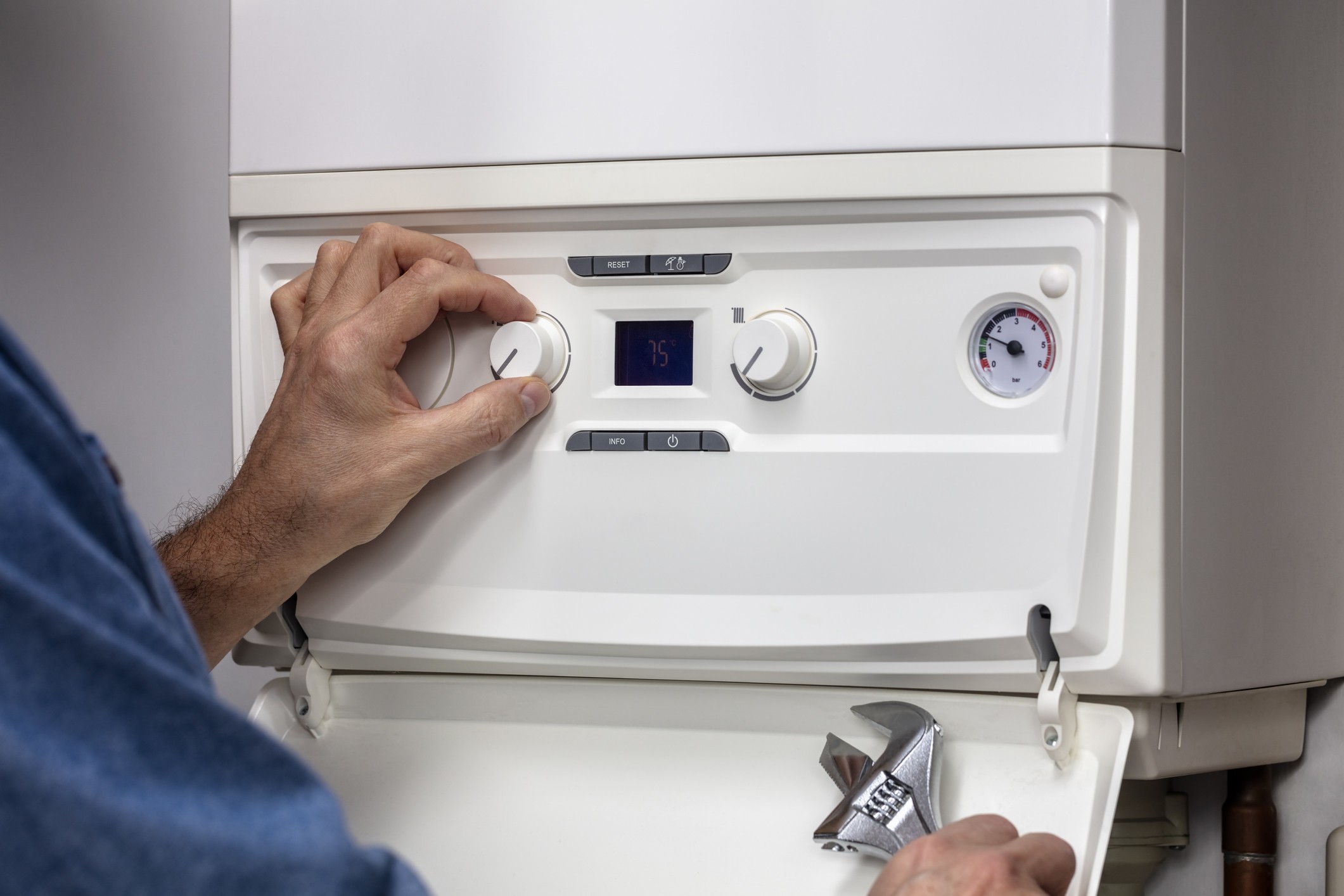
The journey of boiler technology is a fascinating tale that stretches back over centuries. From the rudimentary steam engines of the Industrial Revolution to the sophisticated, energy-efficient systems that grace modern homes today, boilers have undergone a remarkable transformation. This evolution is not just a testament to human ingenuity but also a reflection of our changing needs and priorities.
For homeowners today, understanding this evolution is more than just an academic exercise. It's about recognizing how far we've come in our quest for comfort, efficiency, and environmental sustainability.
The advancements in boiler technology have not only made our homes warmer and more comfortable but have also helped reduce our carbon footprint. As we continue to strive for greener, more sustainable living, the role of boilers in our homes is more important than ever.
Dawn of Boiler Technology
The origins of boiler technology can be traced back to the Industrial Revolution, a period of rapid industrialization that began in the late 18th century. It was during this time that the steam engine emerged as a revolutionary invention, transforming industries and transportation. The heart of the steam engine was the boiler, a device designed to convert water into steam by heating it. This steam was then used to power machinery, locomotives, and ships, marking the beginning of a new era in human history.
The early boilers were simple, consisting of a firebox where fuel was burned to heat water in a tank or a series of pipes. These early designs were rudimentary and had several limitations. They were often inefficient, with a significant amount of heat lost to the surroundings. Safety was also a major concern, as the poor construction and lack of proper safety measures led to frequent explosions and accidents.
Despite these limitations, the early applications of boiler technology were instrumental in driving the Industrial Revolution forward. They powered the first factories, enabling mass production and reducing reliance on manual labour. They also played a crucial role in transportation, with steam-powered locomotives and ships revolutionizing travel and trade.
As the demand for steam power grew, so did the need for more efficient and safer boilers. This need spurred a wave of innovation and experimentation that would lead to significant advancements in boiler technology.
Advancements in Boiler Design
As the Industrial Revolution progressed, the limitations of early boiler designs became increasingly apparent. This led to a period of rapid innovation, with engineers and inventors seeking ways to improve efficiency and safety. One of the key advancements was the introduction of more efficient materials and designs.
Initially, boilers were made from wrought iron, which was prone to corrosion and had limited strength. The introduction of steel, with its superior strength and durability, marked a significant improvement. Steel boilers could withstand higher pressures and temperatures, leading to better efficiency and safety. Additionally, the development of water-tube boilers, where water flows through tubes surrounded by hot gases, further enhanced efficiency by allowing for faster heat transfer.
Another major advancement was the shift from coal to gas and oil as primary fuel sources. Coal was abundant and cheap, but it was also dirty and inefficient. The advent of oil and gas boilers brought several advantages. These fuels burned cleaner, reducing pollution and maintenance requirements. They also allowed for more precise control of the combustion process, leading to higher efficiency and better safety.
The transition from coal to gas and oil boilers was not just a technological shift but also an environmental one. As concerns about air pollution and climate change grew, the cleaner burning characteristics of gas and oil became increasingly important. This shift also paved the way for the development of condensing boilers, which could extract even more heat from the exhaust gases, further improving efficiency.
The advancements in boiler design during this period were driven by a combination of technological innovation and changing societal needs. These improvements not only made boilers more efficient and safer but also more environmentally friendly, aligning with the growing awareness of the impact of energy use on the planet.
Modern Boiler Systems
The continuous quest for efficiency and sustainability has led to the emergence of modern boiler systems that are a far cry from their early predecessors. Among the most significant advancements are high-efficiency condensing boilers, which represent a major leap forward in boiler technology.
Condensing boilers are designed to capture the heat that is usually lost through the flue gases in traditional boilers. They achieve this by condensing the water vapour in the exhaust gases, recovering its latent heat, and using it to preheat the incoming cold water. This process can increase the efficiency of the boiler to over 90%, resulting in substantial energy savings and reduced carbon emissions. The widespread adoption of condensing boilers has been a key factor in making heating systems more environmentally friendly and cost-effective.
In parallel with the development of high-efficiency boilers, there has been a significant integration of smart technology into heating systems. Modern boilers can now be equipped with intelligent controls that allow for better monitoring and management of the heating system. These smart controls can adjust the boiler's operation based on real-time data, such as the temperature inside the house and the weather outside. This ensures that the boiler operates at optimal efficiency, providing the right amount of heat when needed and reducing energy waste.
The integration of smart technology has also enhanced the convenience and comfort of using boiler systems. Homeowners can now control their heating remotely using smartphones or tablets, schedule heating cycles, and even receive alerts for maintenance or potential issues. This level of control and monitoring was unimaginable in the early days of boiler technology and represents a significant advancement in the way we manage our home heating systems.
Environmental Impact and the Push for Green Technology
In recent years, the environmental impact of energy consumption has become a pressing global concern. As a result, there has been a significant push towards green technology in various sectors, including heating and cooling systems. Boilers, as a key component of these systems, play a crucial role in reducing the carbon footprint of homes and buildings.
The adoption of high-efficiency boilers, particularly condensing boilers, has been a major step in this direction. By maximizing the energy extracted from fuel, these boilers significantly reduce the amount of greenhouse gases emitted into the atmosphere. This not only helps in combating climate change but also contributes to cleaner air quality, benefiting both the environment and public health.
The integration of boilers with renewable energy sources has been a game-changer in the push for green technology. Solar thermal systems, for example, can be used to preheat water before it enters the boiler, reducing the amount of fossil fuel needed to heat the water to the desired temperature. Similarly, geothermal heat pumps can be used in conjunction with boilers to provide efficient heating and cooling by harnessing the stable temperature of the earth.
The adoption of these renewable energy sources not only reduces reliance on fossil fuels but also leads to significant energy savings over time. Governments and organizations worldwide are offering incentives and subsidies to encourage the integration of green technology in heating systems, making it more accessible and appealing to homeowners and businesses.
Boiler Repair: Then and Now
The evolution of boiler technology has been paralleled by significant advancements in repair and maintenance techniques. In the early days of boiler technology, repairs were often rudimentary and reactive, with limited tools and knowledge available to address issues. Boilers were prone to frequent breakdowns, and repairs often involved manual labour and rudimentary tools, with a focus on fixing immediate problems rather than preventing future ones.
As boiler technology advanced, so did the techniques and tools used for repair and maintenance. The introduction of more sophisticated diagnostic equipment has allowed technicians to identify and address issues with greater precision and efficiency. For example, the use of thermal imaging cameras can help detect heat loss or leaks in the system, while digital manometers can accurately measure gas pressure to ensure optimal combustion.
The evolution of repair techniques has also been influenced by the increasing complexity of modern boilers. With the integration of electronic controls and smart technology, boiler repairs now often require specialized knowledge and skills in electronics and software, in addition to traditional mechanical expertise.
The importance of regular maintenance has become increasingly recognized as a key factor in ensuring the longevity and efficiency of boiler systems. Regular check-ups and servicing can help identify potential issues before they turn into major problems, reducing the likelihood of unexpected breakdowns and extending the lifespan of the boiler.
Well-maintained boilers operate more efficiently, saving energy and reducing costs in the long run.
The Boiler Technology Journey
From the rudimentary steam engines of the Industrial Revolution to the high-efficiency condensing boilers and smart systems of today, each advancement has brought us closer to a more efficient, sustainable, and comfortable way of heating our homes.
The future of boilers in a sustainable world looks promising, with ongoing research and development focusing on further reducing environmental impact and enhancing efficiency. Innovations such as hydrogen boilers, which emit only water vapour when burned, and the integration of boilers with advanced renewable energy systems, are on the horizon. These advancements hold the potential to make boilers an even more integral part of a sustainable energy future.
As we move forward, the role of boilers in our homes and buildings will continue to evolve, shaped by the twin imperatives of environmental sustainability and technological progress.
